Question And Answer
Publications
Articles, publications, books, tools and multimedia features from the U.S. Institute of Peace provide the latest news, analysis, research findings, practitioner guides and reports, all related to the conflict zones and issues that are at the center of the Institute’s work to prevent and reduce violent conflict.
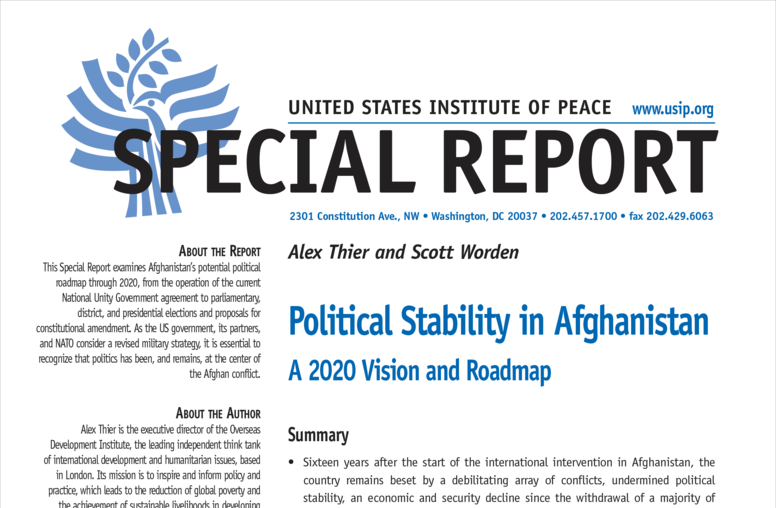
Political Stability in Afghanistan: A 2020 Vision and Roadmap
Sixteen years after the start of the international intervention in Afghanistan, the country remains beset by a debilitating array of conflicts, undermined political stability, an economic and security decline since the withdrawal of a majority of international forces, and a divided government since the 2014 elections. As the US government, its partners, and NATO consider...

Thomas Hill on Libya and Tunisia in Transition
The death of President Essebsi was a major loss for Tunisia, but the U.S. remains deeply invested in advancing democracy in the country. Alternatively, looking to the instability in Libya, Hill says, “The U.S. is not involved at all, [even though some] Libyans are pressing for the U.S. to do more … The most productive way the U.S. can be involved is not militarily or financially, but rather diplomatically.”
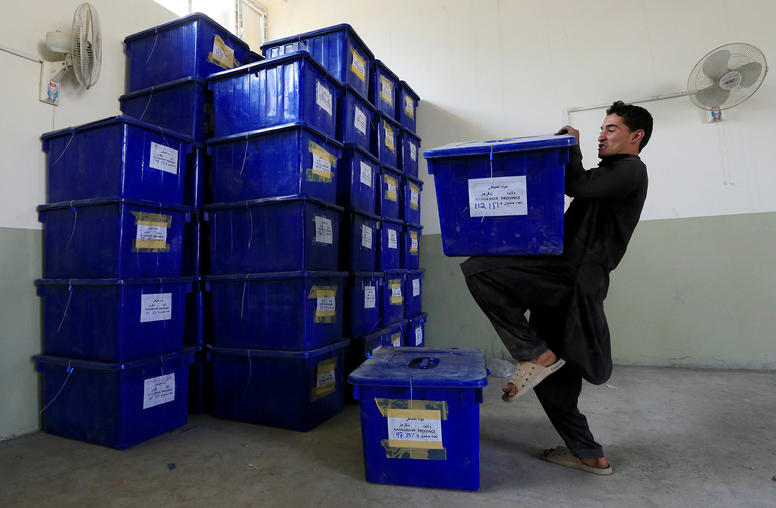
Breaking, Not Bending: Afghan Elections Require Institutional Reform
Afghanistan’s presidential election is scheduled to take place on September 28. In planning the election, the Independent Election Commission (IEC) must overcome a number of practical challenges to avoid repeating the mistakes of the 2018 parliamentary elections—elections that undermined the legitimacy of the state and reduced Afghans’ confidence in democracy as a means for selecting their leaders. Based on a careful analysis of the IEC’s performance during the 2018 elections, this report offers recommendations for creating more resilient electoral institutions in Afghanistan and other postconflict countries.

Sarhang Hamasaeed on Iraq Amid Rising Tensions in the Middle East
Iraqi leaders are concerned that efforts to improve governance and build durable institutions are being overwhelmed by rising tensions between the U.S. and Iran and the potential of a proxy war in the country. “This pressure has definitely undermined the Iraqi government,” says USIP’s Sarhang Hamasaeed.
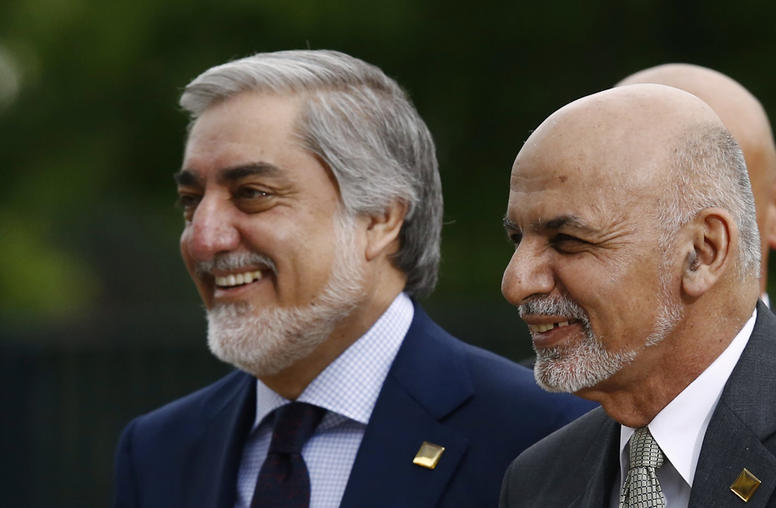
Negotiations, Continued: Ensuring the Positive Performance of Power-Sharing Arrangements
Most negotiated peace settlements since the 1990s have featured some aspect of power sharing, including those in Northern Ireland, Burundi, Bosnia, and Nepal. However, by freezing a sometimes unstable status quo, power sharing can create challenges to maintaining peace over the longer term as issues arise that rekindle enmity or create new suspicions among the parties. This report argues that power-sharing arrangements can be made more durable by providing robust forums, either permanent or ad hoc, that allow parties to resolve differences as they arise and to reaffirm their commitment to peace.
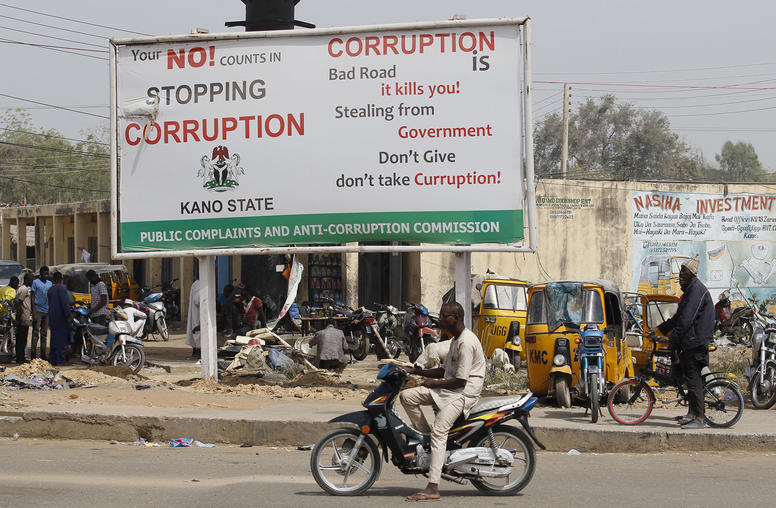
Donor Assistance in the Transparency and Accountability Movement
Focusing on transparency and anti-corruption issues, this report discusses the findings from a series of participatory workshops and more than seventy interviews with social movement actors and organizations in Kenya, Nigeria, and Ukraine. It looks at the different ways social movement actors in these countries were influenced by foreign financial support and training, including in terms of the goals they set, the tactics and activities they pursue, and whether receiving foreign support compromises their legitimacy with their domestic constituents.

Leo Siebert on Tunisia’s Presidential Elections
Last week, Tunisians voted for “a wholesale dismissal of everyone who’s governed before” in the first round of presidential elections, said USIP’s Leo Siebert. And with parliamentary and runoff elections upcoming, a string of free and fair elections could help Tunisia “prove to the world, and be a model to its neighbors, that democracy is possible.”
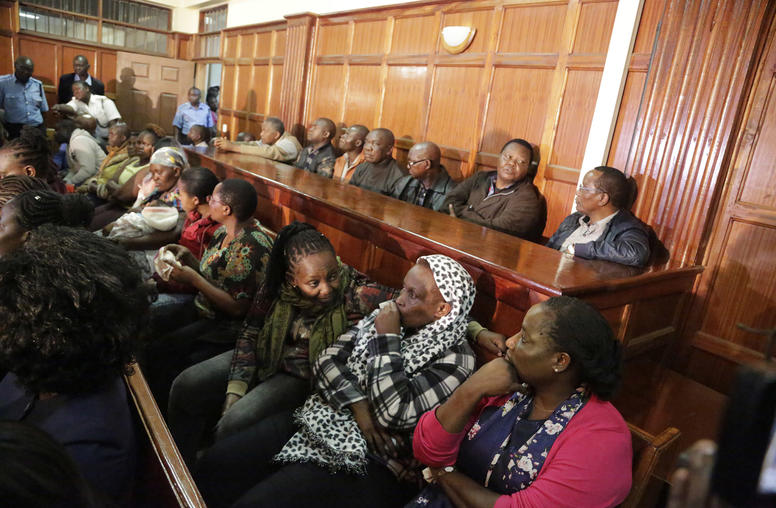
Conflict Prevention in Kenya: Combating Corruption through Nonviolent Action
The relationship between corruption and violent conflict is complex and significant. Corruption affects access to basic services, contributes to resource scarcity, and fuels organized crime. It was included on a European Commission checklist for the root causes of conflict, and it was cited as a potential driver of extremism in the 2019 report of the Task Force on Extremism in Fragile States. Focusing on several social movements in Kenya, this report reviews the efforts of collective civic action to combat corruption and advance transparency, accountability, and good governance.
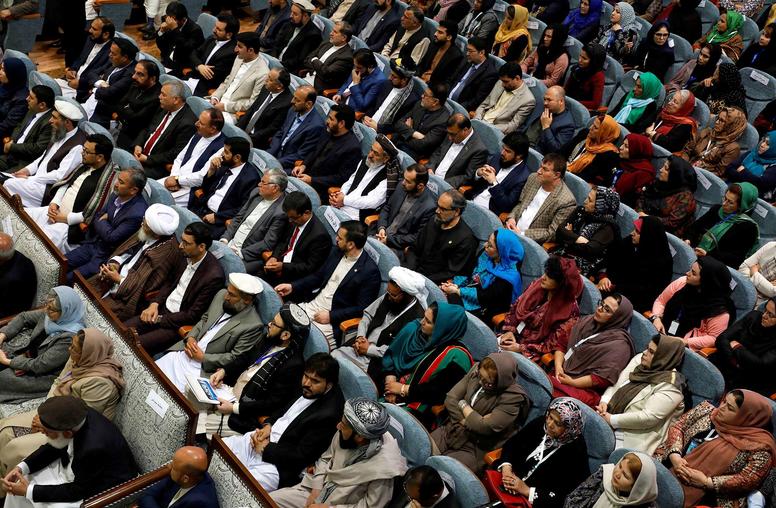
Loya Jirgas and Political Crisis Management in Afghanistan: Drawing on the Bank of Tradition
Many times over the past century, Afghan political elites have utilized a loya jirga, or grand national assembly, when they have needed to demonstrate national consensus. Based on traditional village jirgas convened to resolve local disputes, loya jirgas have been used to debate and ratify constitutions, endorse the country's position and alliances in times of war, and discuss how and when to engage the Taliban in peace talks. In light of the growing political uncertainty in Afghanistan, this report examines the strengths and weaknesses of the loya jirga as an institution for resolving national crises.
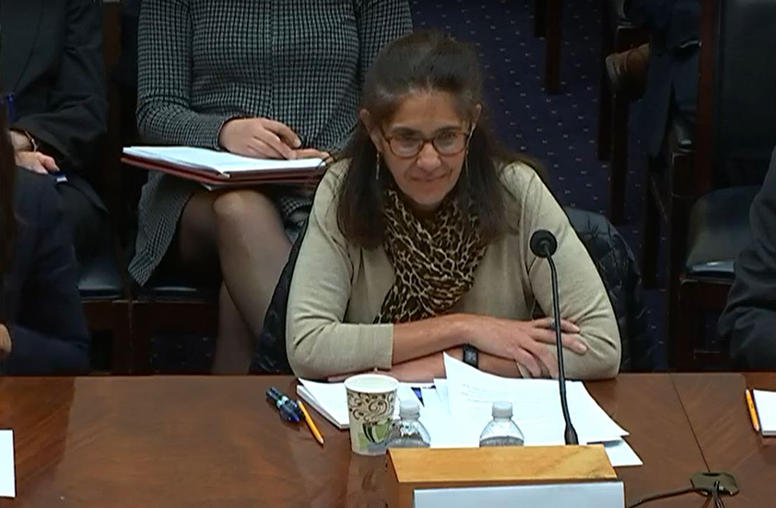
What’s Next for Lebanon? Examining the Implications of Current Protests
Mona Yacoubian, senior advisor for Syria, Middle East and North Africa, testified on November 19 at the House Foreign Affairs Subcommittee on Middle East, North Africa, and International Terrorism's hearing on “What’s Next for Lebanon? Examining the Implications of Current Protests.” Her expert testimony as prepared is presented below.